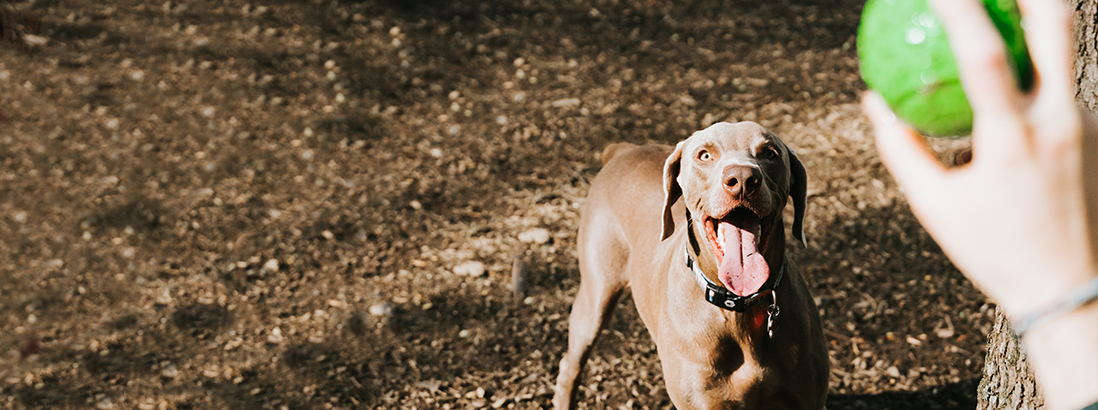
By Amy McNabb
Test Data Analyst | Kaitātari Raraunga Whakamātautau
While a surprise pet might bring a lot of initial excitement, the novelty can wear off. Animals take a lot of time and money to keep happy and healthy.
It’s essential anyone getting a pet knows exactly what they’re signing up for in advance of taking on the responsibility. They’ll be committed for the animal’s entire life. That could be seven to 15 years for a dog or 15 to 20 years for a cat – sometimes even longer.
Children and teens are too young to understand the commitment. So, if you’re getting a pet for a child, make sure the adults of the household are up for the responsibility.
What’s involved in caring for pets
Pets need regular time with their family. Dogs, in particular, need lots of exercise and mental stimulation – every single day. Some dogs, like farm breeds and young dogs, need far more than others.
Unlike many cats, dogs can’t go out whenever they feel like it. They’re fully dependent on their owner for exercise. They’re also pack animals, which means they need lots of time with their family to stay mentally healthy. Most will be unhappy left alone for long periods.
If an animal’s needs for mental stimulation and exercise aren’t met, it might develop unhappy or unhealthy behaviours. Common examples include scratching and chewing furniture (or themselves), digging, escaping, barking, crying, and urinating inside.
If you’re giving an animal as a present, talk to the would-be owner first so they can choose the right pet for their lifestyle and home.

Can the owner afford all costs for the life of the animal?
You should also discuss the ongoing costs of a pet and who’ll be footing the bills, so you don’t saddle the owner with unexpected expenses.
Set-up costs can range from one hundred to several thousand dollars
Adoption from reputable rescue centres, like the SPCA, involves paying a fee that includes desexing, microchipping and vaccinations. If the pet comes from a breeder or elsewhere, those services will have to be paid for separately – typically at a higher price.
Depending on the type of animal, they’ll need collars and leads, food and water bowls, bedding, a kitty litter set-up or kennel with mat, or a hutch or cage, a cat door or fencing and shelter, a transport carrier for small animals, toys and perhaps training.
Ongoing costs can be several thousand dollars per year – The owner
will need money for food, annual vaccinations, regular flea and
worming treatments, vet bills and medication for illness or injury,
day care or scheduled walks for dogs if the owner is out all day,
holiday care, replacement bedding, collars and toys, annual
registration fees for dogs, regular grooming for long-haired animals,
and perhaps pet insurance.
Adopt, don’t shop
If the person you’re gifting a pet to (or you if it’s for your kids) is ready to provide a loving home for the life of an animal, then adoption is a great choice. Take the owner-to-be with you to choose the right animal.
The SPCA or a council’s Animal Services department (“the Pound”) are good places to start. There may be other reputable rescue centres in your area too, such as HUHA in the Wellington region.
You’ll reduce the number of animals trying to find a home – compared to buying from a breeder.
It’s usually significantly cheaper – with adoption fees typically covering desexing, microchipping, and initial vaccinations and treatment for fleas and worms.
The animals are already desexed – so there’s no risk of unexpected litters resulting in more animals needing to find homes.
The animals have been checked over by a vet – and provided any medical care needed.
The animals are often well-behaved and healthy – an animal may be at a rescue centre simply because its owner’s circumstances have changed. Dogs and cats at rescue centres are also regularly of mixed breeds, and may have fewer health problems than purebreds.
You’ll usually have a trial period – to ensure the owner and the animal being adopted are a good match. If it’s not going to work out for any reason, the animal can be returned.
The owner could get a discount on dog registration – some councils, such as the Wellington City Council, offer discounts for the first year of registration for dogs adopted through Animal Services, the SPCA and HUHA.
Consider adopting an older animal
Ask the owner-to-be whether they’d consider an older pet. Unlike kittens and puppies, older animals usually have more settled behaviour, so they’ll be less likely to damage property – even at just 18 months of age.
It’s easier to see the personality of animals that are a few years old, as well as their needs for exercise, entertainment and company. It’ll also be easier for the would-be owner to tell whether they’re the right fit for their lifestyle. Most of these animals will be toilet-trained already, and some may even have prior training.

The older the animal, the less the commitment in terms of years too. A person may know they’re able to commit to a pet for five to 10 years, but may not want to be tied down for 15 to 20 years.
Offering a home to an older animal is also just a great thing to do. Puppies, kittens and other young animals are adopted rapidly, but there are many fantastic older pets looking for a loving home.
What if they can’t look after the pet anymore?
Be aware that people’s circumstances can change. Someone with a pet they didn’t expect might struggle to continue caring for it if they have to find a new rental property, for example. That’s why it’s vital they make the decision themselves rather than receiving a surprise pet.
Some changes in circumstances are not preventable, of course – say the owner gets a long-term illness or disability. So, what should they do if they can no longer care for their pet?
If someone can no longer take good care of their pet or other animal – for any reason at all – they should contact the SPCA without delay. It’s the right thing to do.


